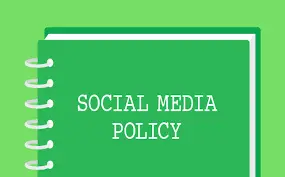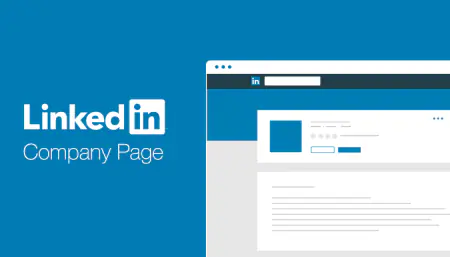How to write social media policy for your company?

It`s good to have a social media policy on your company`s website. With it, employees know about their rights, duties and company rules. Social media policy makes people sure that they are working with the real company that gave real services and sell real goods.
However, companies often face problems while preparing and implementing their social media policy. So, in this article, we will tell you how to prepare good social media policy for your brand.
What is a social media policy?
We know that some of our readers are only beginning their work in the social media, so it will be right for us to start with the definition. Social media policy is a list of rights and rules that outlines how exactly organization and its employees should conduct themselves online. It also helps your brand to save its reputation.
However, every platform is changing very fast, so your policy could quickly become ineffective after a short period of time. Think of your social media policy as a set of guardrails, rather than train tracks. It should look like a real document with all needed ongoing updates.
Of course, you shouldn`t provide something difficult. It could look like a catalog in the airport – just put all needed information there, and everything will be fine.
 What is the benefit of social media policy?
What is the benefit of social media policy?
Sometimes people say that their company doesn`t need a policy, because it`s already established on the platform. Well, it`s never too late to draw up a policy to help guide decision making as you go forward. If you only start working on the platform, it`s even better. A good policy will be even more effective if it`s implemented tight way. So why you need social media policy.
-
Defending against legal trouble and security risk
In the social media, it`s normal to face things like copyright or privacy. With strong social media policy, you won`t have any problems with security risks. They outline potential threats and include instructions on how to avoid them.
Let`s have a look on Adidas social media policy and what they say about the copyright:
“If it is not yours, don`t use it. This is very simple. It is everybody`s own choice to share his or her ideas in materials with the world, not yours. Before posting someone else`s work, please check with the owner first. When you do make a reference, where possible, link back to the source.”
-
Empowering employers to share company messaging
Do your employers enjoy working with you and your colleagues? If they really enjoy it, let them show their opinion in all possible ways.
With clear guidelines, companies can help employers to understand how to use social media for the brand promotion. When someone reads your employer`s positive post about your brand, he/she understands that this brand is good and he/she can buy something there.
Outline best practices for sharing company content and implement them to your social media policy.
-
Creating consistency across channels
You use multiple platforms for connect with the employers? You want to unite all your channels between each other. It`s easy to do – you just need a company`s tag on all platforms. It`s a very popular practice, and all huge companies use it. Here`s how it looks like: you want to write a nickname on Twitter, so you start with @Brand`s tag + your name. simple? Yes! Effective? Of course!
What the ideal social media policy should include?
And now, it`s time to show you what exactly you need to write in your social media policy.
- Rules and regulations. This section should outline your company`s expectations for appropriate employee conduct on social media. For example, many policies include lines that asks employees to ignore all controversial posts about the brand.

- Roles and responsibilities. In this section, you should place information about everyone`s tasks and duties. Each worker must know what to do, when to do and how to do. Start by creating s table with two columns. The first column should define a specific social media responsibility, and the second column should define the name of the worker.
- Potential legal risks. In social media, we could face a lot of legal risks, and working fast across large teams can amplify those risks. Your social media policy should provide clear guidelines for handling any areas of potential concern. Each country has it`s own legal risks, so you should make a research to find yours.
- Security risks. Every social media platform is a big field where every hacker, burglar or cheater could come and stole something from you. If you want to avoid this, you must protect yourself. Good social media policy should provide guidelines on how to: create secure passwords and set-up two factor authentication, keep your software and devices updated, avoid spams and scams, identify any potential attack and respond an event.
How to implement social media policy?
Here, we have three core points that must be followed.
- Seek input. This policy should be crafted with employee participation. This process helps you to ensure all your bases. Also, it makes you sure that everyone buys into the program.
- Focus on the big picture. As we told before, all social media platforms change face regular changes, and, of course, the ratings of the most popular platforms. Your task here is to provide guidelines that are as universal as possible.
- Don`t discourage users. the language and content of your policy should give employees a signal for action. Make sure that they have all needed tools and instruments that will help them to do their job and promote your brand.

local marketing tips monthly
Enterprise: for multi-location and direct selling brands. Manage thousands of social media pages of your local distributors, partners, or franchisees.
Agency: for marketing agencies. Manage all your clients’ social media pages on one platform.




 What is the benefit of social media policy?
What is the benefit of social media policy?


